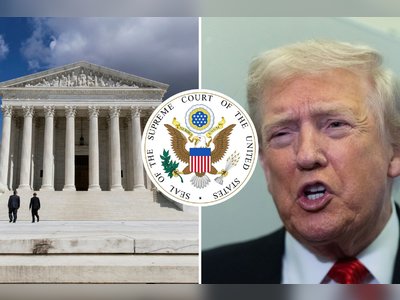
What's Behind Skyrocketing Number of US Military Suicides & Is US Gov't Doing Enough to Stop It?
The Cost of War Project, a joint research effort between Brown University and Boston University, found that a whopping 30,177 American active military servicemen and veterans involved in post-9/11 wars have died by suicide, adding that this figure is at least four times greater than the 7,057 personnel who were killed in combat during that time.
Trauma, Hopelessness & Isolation
"In general, this is a high stress occupation, which has even been harder due to the pandemic", explains Arash Javanbakht, a professor of psychiatry and behavioural neurosciences at Wayne State University and director of the Stress, Trauma, and Anxiety Research Clinic. "We are well aware of a higher rate of PTSD among populations like veterans and first responders, due to higher exposure to trauma. There are consequences that follow, such as depression and substance use. All the above are risk factors for suicide".
While it is hard to predict who is going to commit suicide, there are certain red flags one should keep in mind, Javanbakht notes. According to him, increased impulsive or self-destructive behaviour, increased use of alcohol or substances, expressing suicidal thoughts or wishing for death, social withdrawal, and a feeling of hopelessness and having no reason for living are among those troubling signs.
The problem is exacerbated by the fact that military personnel suicides usually backfire on their relatives and friends, notes Dave Barbush, chairman and CEO of Once a Soldier, a non-profit that assists families of veterans who die from suicide. A family that failed to prevent the tragedy and witnessed their father taking his own life often ends up with serious mental issues too, according to him.
Still, it would be wrong to reduce the problem solely to a mental health crisis, suggests Mark Kaplan, professor of social welfare at the UCLA Luskin School of Public Affairs, who studies suicide for the Department of Veterans Affairs. Kaplan points out that there are active duty service members and veterans who have taken their lives while not experiencing psychological issues often associated with suicide.
"The problem has other dimensions that sometimes are overlooked", he says. "Veterans, as well as those in the military, active military, if they die by suicide, they do so with a firearm. And the rates are extraordinarily higher… Those who attempt [a suicide] are 90 to 95 percent likely to die by that self-inflicted gunshot wound".
The military is a social group which is more likely to own guns, he points out, arguing that there is a need to re-examine what role firearms play in suicide cases. "I think we need to perhaps get talking about harm reduction that is getting rid of the guns in a universal way, so there is a lower risk of dying if you attempt suicide", the academic suggests.
US Gov't Has Yet to Address the Problem Properly
Washington has largely failed to curb suicide rates within the US Armed Forces because the federal government is not doing enough and is not even really willing to assist with the issues American military servicemen are facing, argues Barbush.
"Charities in the US, what we tend to do is cover the gaps that the government leaves open", he says. "There are huge gaps in taking care of veterans, whether it's housing, employment, food, all these things that veterans, all these problems that are in space, the government doesn't really do enough. And so charities like mine step up and are created because people want to help".
Meanwhile, many active-duty servicemen remain silent about their mental health issues because of a certain stigma associated with the problem: "There's a cloud over talking about mental health crisis, especially if you're active duty", Barbush notes. "They're not going to talk to their buddies because it's still taboo. And it's going to make them look weak or they'll get hazed or something".
Likewise, US military servicemen who return from war zones are often left to deal with emerging psychological problems on their own, according to the scholar. Nominally, there are governmental programmes and entities tasked with helping veterans, such as the Veterans Administration (VA). Still, the same stigma haunts vets even there: they fear to talk about their mental health crises because they are concerned about possible negative repercussions, the scholar says.
The problem requires further investigation, according to Mark Kaplan, who believes that one also has to look at demographic issues. He cites previous Pentagon studies which indicated a significant increase in suicide cases in the Army and Marine Corps.
"Is there something in particular that makes the person serving in the Army different from those serving in other branches of the military?" the professor asks. "And the demographics, I would urge you to look at the demographics, are quite different. This was particularly of concern during the Iraq War, for instance, that they were lowering the standards and were trying to meet their quotas for recruitment".
Gender issues also require special attention, according to the academic. Although men account for the majority of the nation's troops, the rate of suicides among women in the US Armed Forces could be called a "hidden epidemic", he notes.
Suicide rates in the US Army are usually expressed as the annual number of deaths for every 100,000 people. Back in 2015, The Los Angeles Times noted that for male veterans, that figure was 32.1, compared with 20.9 for other men, while in the case of female veterans and other women the gap was much wider: 28.7 and 5.2, respectively.
Unless a comprehensive approach to the problem is adopted, the suicide rates in the US Armed Forces will never be reversed, according to the professor.









